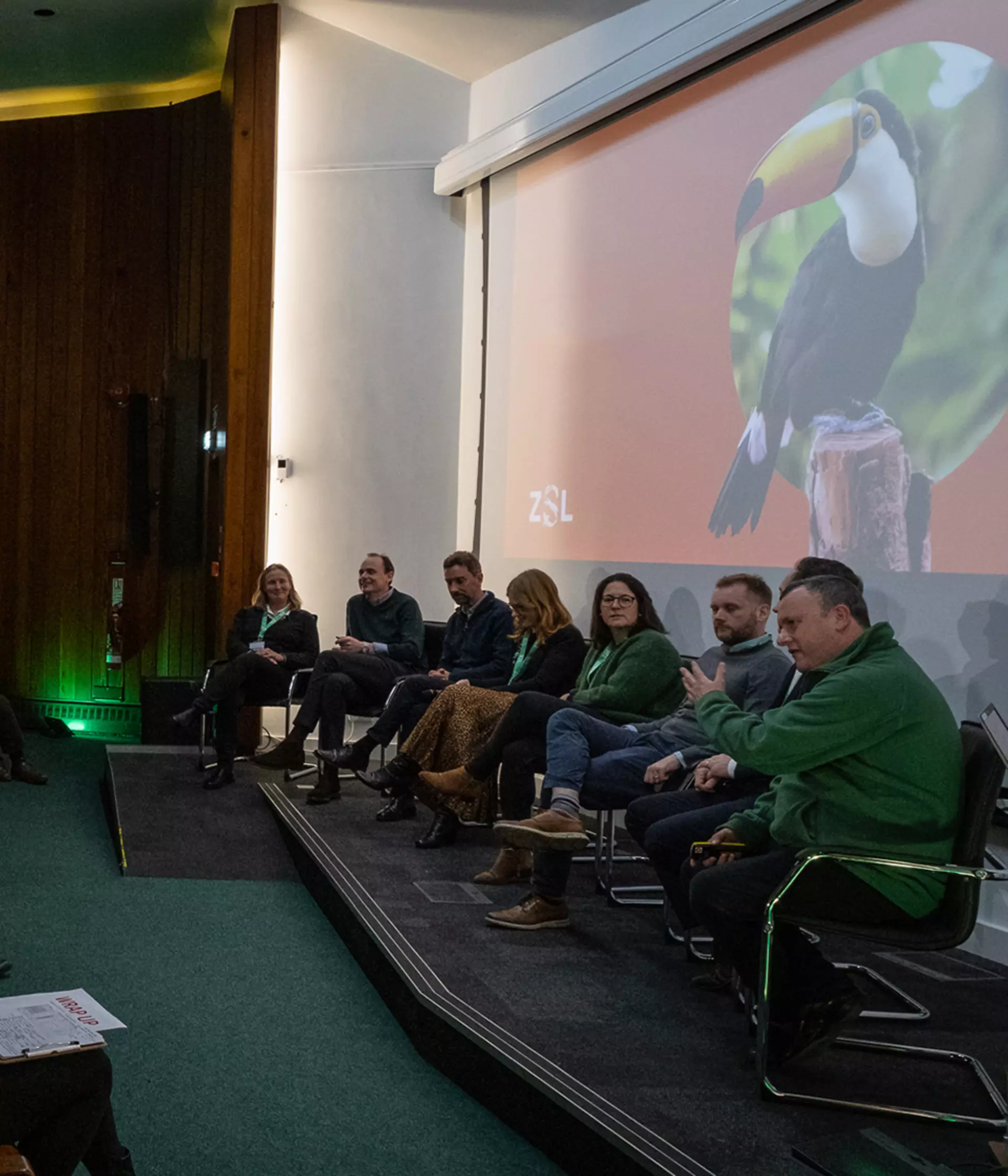ZSL Events
At ZSL, we host a huge range of events, from fundraising challenges, family occasions and special workshops to conservation and science events, both in-person and online.
Our aim is to give you opportunities to get involved with our work. Whether that be by taking part in a sponsored challenge to raise money for conservation, or to deepen understanding of wildlife, in person or digitally, through our science events.
The best part? Many of our events are free to attend and available to stream for all afterwards.
So take a look at the events we have coming up and check out our past events all from this page.
To be the first to know about newly announced ZSL Science and Conservation Events, sign-up for updates.
- 2024 – In-Person Fundraising Event
Skydive for ZSL!
Feel the full force of flying through the clouds from over 10,000ft at up to 125mph while raising money for wildlife conservation at the same time.
- 13/05/2025 – In-person event
Postponed - Learning to Adapt: Animal behaviour for conservation success
How can a better understanding of animal behaviour support conservation action and population recovery?
- Moving for wildlife
Around the World
In June 2022, 131 of you joined our Around the World in 30 Days challenge. Together, we walked, ran, rolled and cycled over 14,119km and raised over £9,300 to support our worldwide wildlife conservation work.
- 4-5/6/2025 – In-Person Event
Seascape Symposium II: Reconnecting the Seascape
A two-day symposium aiming to connect experts working in science, policy and practice on reconnecting coastal habitats for delivery of global nature restoration targets.
- 10/07/2025 – In-person event
Symbiotic wonders across the Tree of Life
Why is studying microbe-host relationships essential to understanding and conserving flora and fauna?
- Take on the London Marathon for ZSL!
London Marathon 2026
Running events don't get more iconic than the London Marathon. Run for ZSL in the 2026 London Marathon and join our fight for wildlife!
